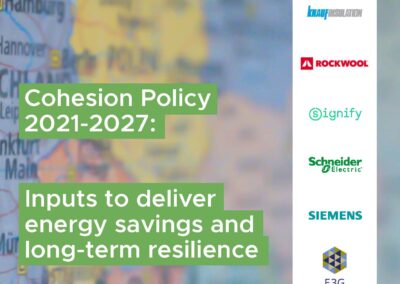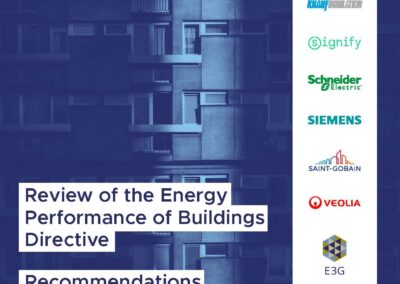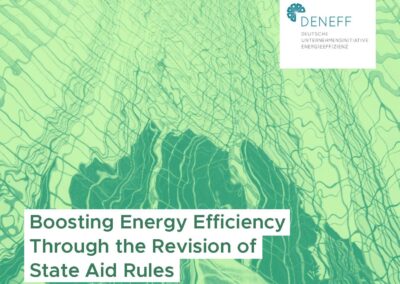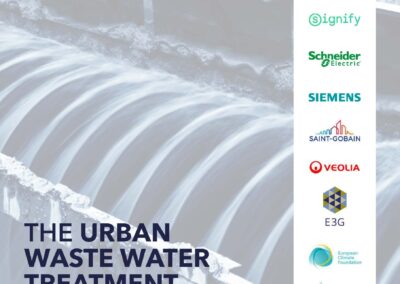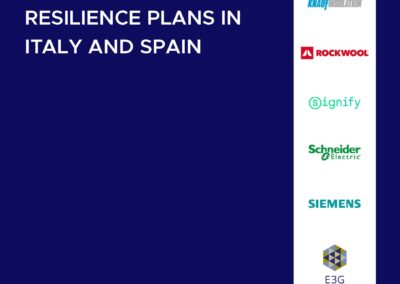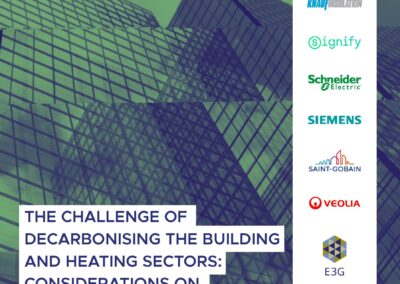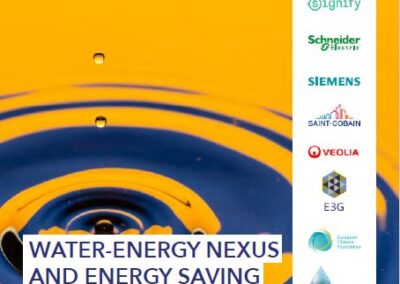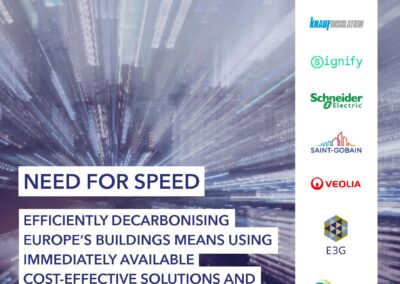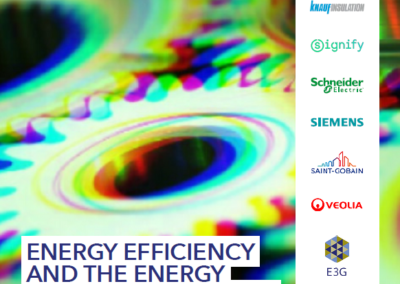Papers
Cohesion Policy: Inputs to deliver energy savings and long-term resilience
Energy efficiency gains are essential to reach the European Union increased emission reduction target by 2030 and climate neutrality by 2050. The EU cohesion policy programming for 2021-2027 can greatly contribute to promoting the uptake of energy efficient measures, making sure that no region or city is left behind in the transition to a clean...
read moreRecommendations to shape the decade of buildings renovations
Reducing energy demand and increasing energy efficiency in the buildings sector is a prerequisite for achieving the EU’s energy and climate objectives. This position paper calls on the European Commission to revise the Energy Performance of Buildings Directive (EPBD), aligning its objectives with the European Green Deal. The revision of the EPBD...
read moreBoosting energy efficiency through the revision of State Aid rules
The European Commission should revise EU State Aid rules so they can help boost energy efficiency across Europe. To ensure that the energy markets are fair, flexible, and secure, the EU State Aid rules must address investment gaps by providing enabling conditions for attracting private investment. This is politically relevant considering the...
read moreThe Urban Waste Water Treatment Directive to fully realise water and energy savings (updated)
Overall, the Urban Waste Water Treatment Directive (UWWTD) has played a substantial role in improving the quality of European water resources and reducing pollution levels in water bodies. However, Europe remains some way from full compliance with collection and treatment requirements and has made little progress with water reuse. We believe the...
read moreConsiderations on the draft Recovery and Resilience Plans of Italy and Spain
The National Recovery and Resilience Plans (NRRPs) are a unique opportunity to boost the economy, safeguard and/or create good jobs and win the fight against climate change in the short and long term. According to the available drafts, both Italy and Spain, two of the biggest beneficiaries of the EU Recovery and Resilience Facility, seem to be...
read moreDecarbonising the building and heating sectors: considerations on carbon pricing
Energy efficiency should be the starting point for all decarbonisation efforts. Carbon pricing can play a role in this, as it can provide incentives for the fuel switch and to some extent for energy efficiency investments. Yet, it should not replace impactful regulatory measures in the building sector driving the energy savings necessary to meet...
read moreWater-energy nexus and energy saving obligations: industry success stories
This paper showcases concrete examples of water and energy saving projects across sectors and European countries. These feature some of the most advanced environmental technologies currently available on the market, allowing to deliver environmental, economic and social benefits. Water and energy are deeply entwined. The water-energy nexus refers...
read moreInputs for economic recovery, resilience and long-term sustainability
This short paper outlines the inputs of the European Alliance to Save Energy to achieve a green economic recovery, resilience and long-term sustainability in the aftermath of the Covid-19 pandemic. These include spending criteria and quota that should be applied in both the Recovery and Resilience Facility Regulation (RRF), currently being...
read moreDecarbonising Europe’s buildings with available solutions, no hydrogen
Meeting the EU’s goal of achieving a climate neutral economy by 2050 will require a steep reduction in gas demand, and such reduction will need to start before 2030. This means the EU should focus on immediately available and cost-effective solutions, starting from energy efficiency and renewables, especially for buildings. While green hydrogen...
read moreEnergy efficiency and the Energy System Integration Strategy
Reducing emissions across all sectors and decarbonizing “hard-to-abate sectors”, which include buildings, industry and transport, will strongly depend on the EU ability to apply the energy efficiency first principle, which should be mainstreamed to all energy policymaking, planning and investments, including into the upcoming EU Strategy on...
read more
